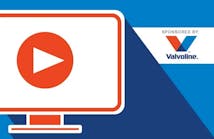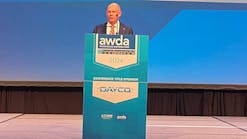Shhh! Listen. Hear that? It's your customer trying to tell you how you can close the sale. Don't hear anything? Listen closer.
Research shows that better listeners tend to be better salespeople. That may seem counterintuitive to you. The stereotypical salesperson is glib. In fact, he's so talkative that it's hard to get a word in edgewise. If he seems to be listening, it's only long enough to be thinking up his response to your objection.
That typecast chatty character may be the kind of person who's most often drawn to sales, but it's not often the one who's most successful at it. Unless you listen to what your customer is saying, you won't understand his deeper wants and needs. And you'll find that the more you listen to others, the more they'll listen to you. As the old saying goes, "God gave us two ears and only one mouth, to use in that proportion."
I thought I'd look at how another profession uses questions and listening skills to uncover hidden answers. Psychiatrists and therapists, for instance, are expected to be good listeners. (Though buying tools can be therapeutic, I couldn't bring myself to draw an analogy between the two.)
I assume priests listen a lot while sitting in a confessional. Again, though buying tools can sometimes seem like a religious experience, I didn't want to risk getting hit by a lightning bolt writing this column.
Then I remembered, as a kid, playing reporter. I put a "press pass" in my dad's old fedora and followed my mom around the house with a notebook pestering her with a barrage of questions. It wasn't until I later studied journalism in school that I realized good investigative reporters are good listeners. In fact, they use some of the same tactics a detective uses. They ask tough questions and listen closely.
Active listening is as simple
as using questions to help your customers open up. I'm not suggesting some clever sales ploy.
I'm suggesting you use a few questions and a little silence to get your customer to talk.
Ask good questions and you'll get the information you need to connect your customer with
the right product.
Here are a few questioning and listening techniques to help you uncover your customer's
spoken and unspoken needs.
ASK OPEN QUESTIONS
An open question is simply one that can't be responded to with a "yes" or "no" answer.
Closed question: "Do you like this grip better than the other
one?"
Open question: "What do you like (not like) about this grip?"
Open questions give your customer a chance to give you feedback. You can use that feedback to find the "hot buttons" that will help you match a product with the customer's wants and needs and then close a sale, later.
LISTEN... THEN LISTEN MORE
Make a mental list of what your customer says. Don't worry about what you're going to say next. Just focus on his response.
When you feel the urge to interrupt, stifle it.
When your customer is done, pause a second. Then ask, "Anything else?"
I find that often the things a customer says after that question are significant.
MIRROR THEIR ANSWER
Now, before you start talking, it's helpful to confirm what you just heard. Sometimes a sales opportunity is missed because you heard something wrong. Other times, your customer was just fuzzy about saying what he meant.
Mirroring, or repeating back what your customer said in other words, can help you avoid misunderstandings and uncover sales opportunities. For example:
Customer: "I sure don't need another normal
box wrench."
Jobber: "Are you saying you have enough box wrenches and don't want this
one?"
Customer: "No. I have normal box wrenches. But I like how this one ratchets."
OK, I'm oversimplifying a bit. But you get the point. Sometimes reverse mirroring can be useful to:
Customer: "I don't think I want that tool this week."
Jobber: "Do you mean you would buy it next week?"
If they say "yes," you've uncovered a chance to close a sale. I might respond: "I could hold it for you until next time. If you don't have the cash now, you could give me a deposit then. Do you want to commit to that?" (You need to know your customer to know if that is a good idea or not.)
Or here's another mirroring scenario:
Customer: "It's too big."
Jobber: "Are you saying it's too big to fit in your tool box? Or too big to use
comfortably?"
Customer: "Neither. I think it's too big a price tag."
Jobber: "Well I do carry a less expensive one with fewer features. Are you
interested?"
ASK FOLLOW-UPS
Sometimes a few follow-up questions can help you get the information you need to close a sale:
Customer: "The grip feels like it won't slip. But it's
a little too light to me."
Jobber: "Is slipping or weight more of an issue to you?"
Customer: "Slipping. Definitely slipping."
Sometimes follow-up questions can help your customer realize you're looking out for them by asking good questions…
Customer: "I
guess I'll take this one."
Jobber: "Before I write up the order, what do you think of the cordless version?"
Customer: "I never thought about it."
Jobber: "It costs a little more, but I like it. Let me ask you some questions
about…"
As a jobber, I realize you're juggling a lot of balls everyday. Taking time to listen may sound like a waste of time. But in reality, if you had to choose between listening to your customer for a minute or talking for a minute, you'll stand to learn a lot more by listening.
Phil Sasso is president of Sasso Marketing Inc., an aftermarket advertising and public relations agency. Sasso is also a speaker, trainer and consultant. And his wife says he's a good listener. Sometimes. View his marketing blog at philsasso.com/blog, or send compliments, comments or criticisms by email to [email protected].

